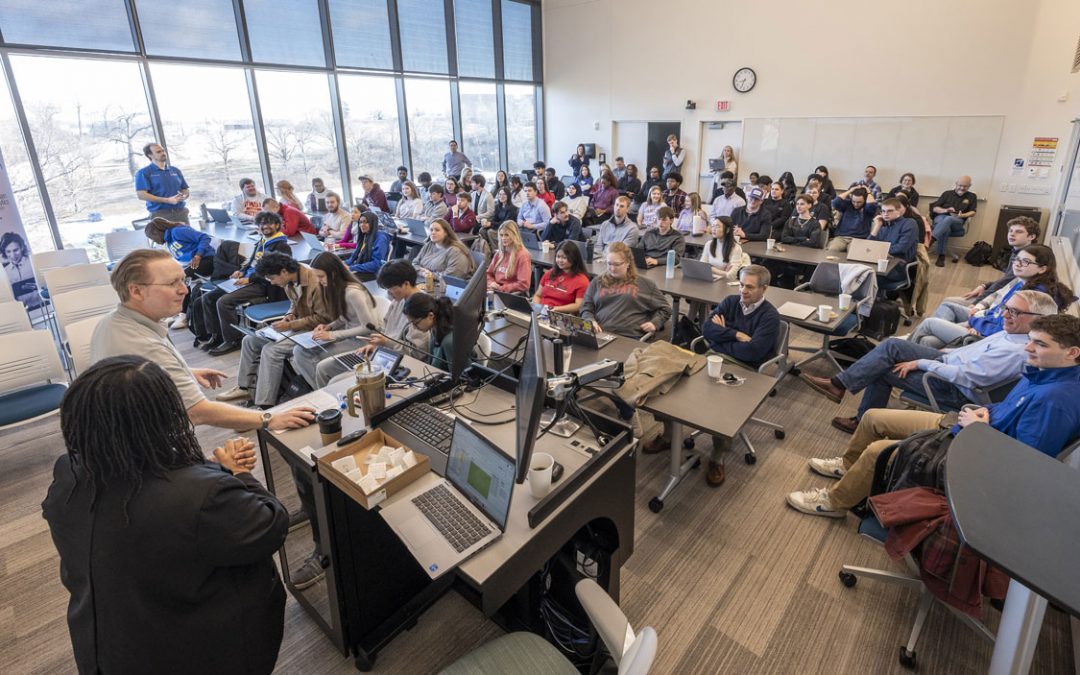
The World Economic Forum, in collaboration with The Conversation, highlighted research from Temidayo Akenroye and his collaborator, Adegboyega Oyedijo from the University of Leicester, on supply chain fairness. (Photo by August Jennewein)
Food producers and suppliers face a power imbalance in supply chains, forced to assume much more of the risk during periods of economic turmoil and at a disadvantage when negotiating contracts with more powerful retailers.
Temidayo Akenroye, an associate professor of supply chain and analytics at the University of Missouri–St. Louis, and his colleague Adegboyega Oyedijo, a lecturer in operations and supply chain management at the University of Leicester, have conducted research on ways to increase “fairness” in supply chains.
The Conversation, an online network of not-for-profit media outlets publishing news stories related to academic research, in collaboration with the World Economic Forum, recently shared their work in an article titled “5 ways to make food supply chains fairer.”
The piece highlights the case of the United Kingdom, where soaring food prices have put pressure on food producers and farmers who have faced rising costs but aren’t seeing the benefits of the price hikes being paid to consumers.
“Our previous research suggests small businesses in other industries also have little or no bargaining power in such situations,” Akenroye and Oyedijo write. “These businesses must adhere to the terms imposed by their buyers, or risk losing income.
“Supporting supply chain fairness will not only safeguard these companies from collapse, it will also help relieve shortages for consumers and could prevent future food supply crises.”
They argue that the “fundamentals of fairness” can be measured by evaluating the “economic returns derived from the relationships; how decisions are governed, as well as the policies and procedures related to the relationship; and the extent to which the other party communicates relevant information and resolves conflicts with openness.”
They also present five detailed strategies that they believe would help support greater supply chain fairness. Those include:
- Revisiting the terms of trade
- Alignment across the food supply chain
- Lobby and advocacy
- Addressing the power imbalance
- Education to raise standards
“With rising demand for food and a growing global population,” Akenroye and Oyedijo write, “it is more important than ever to build a resilient food supply chain.”
Read the full article at the World Economic Forum website.














